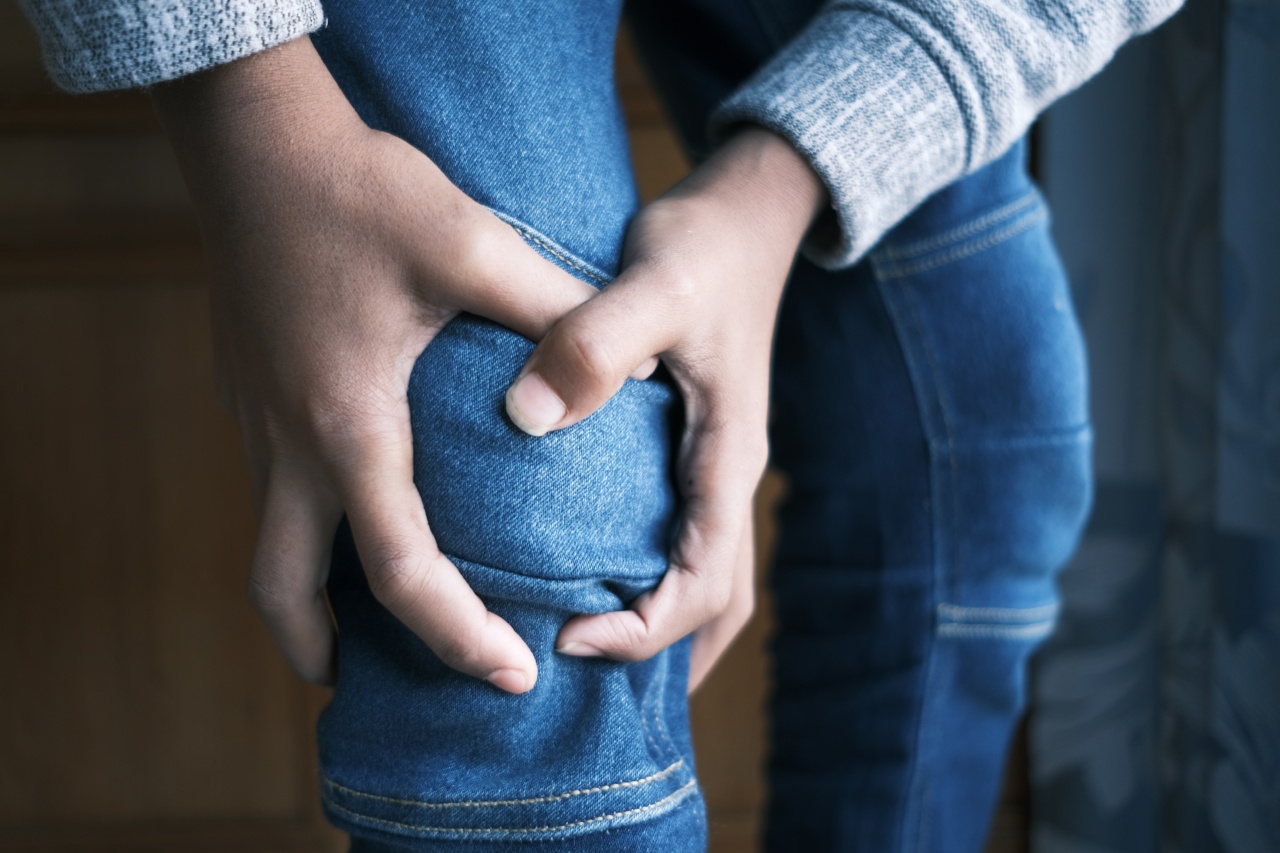Knee pain is a common problem for people of all ages. It can be caused by a variety of factors, ranging from injury to disease. Knee pain can make it difficult to perform everyday tasks such as walking, climbing stairs, and standing up.
In this article, we will explore some of the common causes of knee pain.
1. Osteoarthritis
Osteoarthritis is a joint disease that affects the cartilage, a cushioning material that covers the end of bones in a joint. When the cartilage wears away, the bones rub against each other, causing pain and stiffness.
Osteoarthritis can develop in any joint, but it is most common in the knees. Factors that increase the risk of osteoarthritis include age, gender, obesity, and previous knee injuries.
2. Rheumatoid Arthritis
Rheumatoid arthritis is an autoimmune disease in which the body’s immune system attacks its own joints. This can cause pain, swelling, and stiffness in the joints.
Rheumatoid arthritis most commonly affects the hands and feet, but it can also affect the knees. The cause of rheumatoid arthritis is not fully understood, but genetics and environmental factors are thought to play a role.
3. Injury
Injuries to the knee can cause pain and limit mobility. Common knee injuries include sprains, strains, and tears of the ligaments and tendons in the knee.
These injuries can be caused by twisting or direct trauma to the knee, such as during sports activities or falls. Knee injuries are more common in athletes and people who engage in regular physical activity.
4. Overuse
Overuse of the knee can lead to pain and inflammation. Activities that involve repetitive motions, such as running and jumping, can put a lot of stress on the knee joint. Over time, this can lead to wear-and-tear on the joint and cause pain.
People who have jobs that require a lot of standing or walking may also experience knee pain due to overuse.
5. Tendinitis
Tendinitis is inflammation of the tendons, the thick cords that attach muscles to bones. The tendons in the knee can become inflamed due to overuse or repetitive stress. This can cause pain and swelling in the knee.
Tendinitis is more common in people who engage in sports that require jumping and running, such as basketball and soccer.
6. Bursitis
Bursitis is inflammation of the bursae, small fluid-filled sacs that cushion the knee joint. Bursitis can occur when the bursae become irritated or inflamed due to overuse or injury. This can cause pain and swelling in the knee.
Bursitis is more common in people who engage in activities that require kneeling, such as gardening or cleaning floors.
7. Meniscus Tears
The meniscus is a piece of cartilage in the knee joint that acts as a shock absorber. Meniscus tears can occur when the knee is twisted or put under sudden pressure. This can cause pain, swelling, and a popping sound in the knee.
Meniscus tears are more common in athletes and people who engage in physical activity.
8. Gout
Gout is a type of arthritis that occurs when uric acid crystals accumulate in the joints. This can cause pain, swelling, and stiffness in the joints, including the knees.
Gout is more common in men and can be triggered by certain foods and drinks, such as red meat and alcohol.
9. Infection
Infections in the knee joint can cause pain, swelling, and redness. Infections can be caused by bacteria, viruses, or other microorganisms.
Infections in the knee joint are rare, but they can occur in people with weakened immune systems or in people who have had previous knee surgery.
10. Cancer
Cancer can cause pain in the knees, although this is rare. Bone cancer, which can affect the bones in the knee joint, can cause pain and stiffness. Cancer that has spread to the bones in the knee can also cause pain and other symptoms.
Conclusion
Knee pain can have many different causes, ranging from injury to disease. If you are experiencing knee pain, it is important to speak with your doctor to determine the cause and explore treatment options.
Depending on the cause of your knee pain, treatment may include rest, physical therapy, medication, or surgery. With proper treatment, most cases of knee pain can be successfully managed.



























